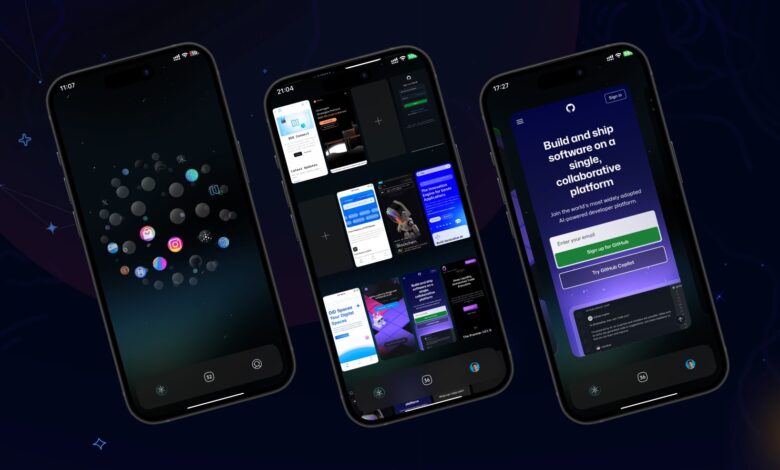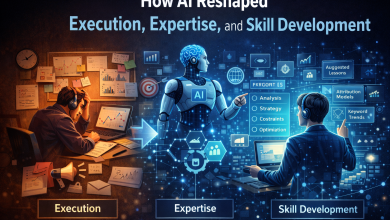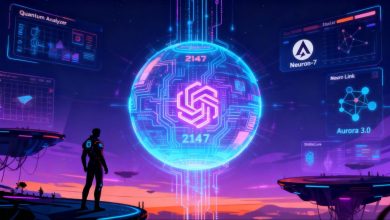
Last month Google sent shockwaves through the tech community when it announced Gemini AI would instantly have access to third-party apps running on its Android operating system. If you happened to click on what looked like a spam email from Google you’d have read some vague instructions on how to undo the automatic access—though even some of the experts had difficulty doing so.
As a result, if you’re one of the estimated 3.9 billion people using Android devices, chances are Google’s AI software is already “making it easier” to use your phone by accessing your personal WhatsApp and more. But this isn’t just about tech geeks getting upset that big, bad Google is using its power to unfairly force its products onto their phones. And it isn’t just a supposed upgrade designed to trick you into letting Google make more money off the way you search for curtains and cars.
It’s an invasion into the deepest facets of our online (and offline) personas. Software companies have a long history of concerns over whether or not they were manipulating their users. Google and others have long been accused of so-called “deceived by design” scenarios where users thought they were doing one thing, then something entirely different happened. With the dawn of AI, those risks of being manipulated are on the verge of exploding.
To be clear, it’s entirely possible Google really does have our best interests in mind. In my experience, most executives whose companies want to influence the way we think earnestly believe they’re making the world a better place. The problem is, it’s also entirely likely the data collected today will eventually be used in ways we can’t currently even conceive. We simply do not know who will be in charge tomorrow.
OpenAI has had a robust privacy policy in place since it launched. That didn’t keep a U.S. Court from forcing the company to hold ChatGPT logs “indefinitely.” Elon Musk’s Grok AI didn’t seem all that different from others until he sought to integrate the software into the security workflow of the U.S. government. If you’re using one of Microsoft’s new AI-enabled computers, it’s probably already taking snapshots of everything you do—unless you’re using software developed by one of a few privacy-focused companies.
It can often feel like we’re at the mercy of Big Tech and privacy experts to protect our identities—and by extension who we will become as a result of the choices we make. But it doesn’t need to be that way. A new wave of so-called “decentralized AI” services is rapidly growing in popularity. Unlike other applications of decentralized tech in the financial world, decentralized AI is growing up alongside its centralized competitors.
It’s up to us to tell the market which version of the future we want. We vote with what we buy, and what parts of how we think we allow to be sold. The difference is just a few clicks of the mouse away: thoughtlessly use what’s sneakily appearing on our phones without our control, or choose autonomy and seek out sovereignty.
The birth of decentralized AI
For all practical purposes, the Age of AI was born on November 30, 2022, when artificial intelligence research firm OpenAI released the first public version of its ChatGPT software. Originally conceived of by Sam Altman, Elon Musk and others afraid that the control of AI by Big Tech would lead to a dystopian nightmare, OpenAI has become one of those Big Tech threats. It is reportedly on pace to earn $12 billion revenue this year, and could hit $125 billion revenue by 2029.
AI is also reportedly generating record growth for Meta and Microsoft, and as an industry could add $2.6 trillion to $4.4 trillion to the global economy annually, according to a recent McKinsey report. In the face of concerns over that growth, decentralized AI has seen increasing popularity.
Class-defining decentralized AI infrastructure provider Bittensor, quietly launched in 2021 to help AI developers write models that solve problems ranging from how to identify fake images to how to cure diseases? Unlike centralized AI whose value accrues to the big tech firms controlling data processing centers as large as Manhattan, these decentralized infrastructure providers let anyone hook up a computer, similar to bitcoin, and in exchange for cryptocurrency that’s valued on an open market, provide computer power to answer these and other difficult questions.
The cryptocurrency behind Bittensor has grown to a $3.5 billion market value, based on CoinMarketCap data. Collectively, Bittensor and its fellow decentralized AI infrastructure providers are valued at $33 billion. But another form of decentralized AI is also taking root. Instead of focusing on the technology that helps write AI models, this new form of decentralized AI focuses on the user.
Where are the people?
Over the past eight years I’ve been helping build out the decentralized layer of the internet. I’ve seen first hand the real, human reasons it’s so important we succeed. People are losing touch with themselves. Their identities are being scattered in wires and waves through the ground and the air respectively. The control we have over what we see and the actions we take is being ceded to algorithms that reduce us to caricatures of who we really are.
That’s why, when my company launched in 2017, we started building the Decentralized Identity (DID) Wallet. There’s now dozens of decentralized identity providers letting us prove who we are without the meddlesome oversight of ad-sellers like Google and Facebook. But even if you can own that core element of your online presence, the moment you connect with centrally controlled software the sovereignty starts to erode.
To solve that problem, we last year launched AIGNE, joining a burgeoning industry of no-code generative AI app builders that extend the autonomy of owning your own identity into the application layer of the internet. As this new kind of software results in more apps being built with sovereign identities at their center entrepreneurs are exploring new ways to help us find what we’re looking for.
Joining the movement
A new breed of user-focused, decentralized AI is also focusing on open-source software running locally on computers owned by the users.
Unlike Big Tech AI that answers billions of questions asked by normal users via server complexes around the world, the questions asked of these local AI providers never leave their devices. Users simply download software onto their own computers. Examples include Ollama, Alpaca, LM Studio, GPT4All and LocalAI. But the software is often heavy, meaning it can take hours to download, and the energy consumption can be through the roof.
To help solve that problem, in May, we launched our own version, ArcSphere, a browser that puts the human experience at the center of the online experience. Unlike Meta’s new AI glasses and Elon Musk’s Neuralink that promise a hands-free way to use AI on the web, ArcSphere lets you touch your webpages. Instead of abstracting away the physical, instead of trusting Big Tech, this new technology literally puts the power in your hands.
We are not alone in our work.
In June, the non-profit, open source software group, Linux Foundation, launched Agent2Agent, originally developed by Google, and seeking to develop free software that can connect AI agents around the world. In July, Cisco-created AGNTCY, and 65 supporting companies also joined Linux to help build its “Internet of Agents,” working together regardless of who built them or—importantly for decentralized AI—where they run.
People are tired of trusting big tech with their identities. A recent survey found that 44% of software users wished they could wipe the internet of everything it knew about them. They just don’t have the ability to do so. If we succeed in the two-step process of decentralizing identity and AI, future generations of web users won’t have to wish any longer.





